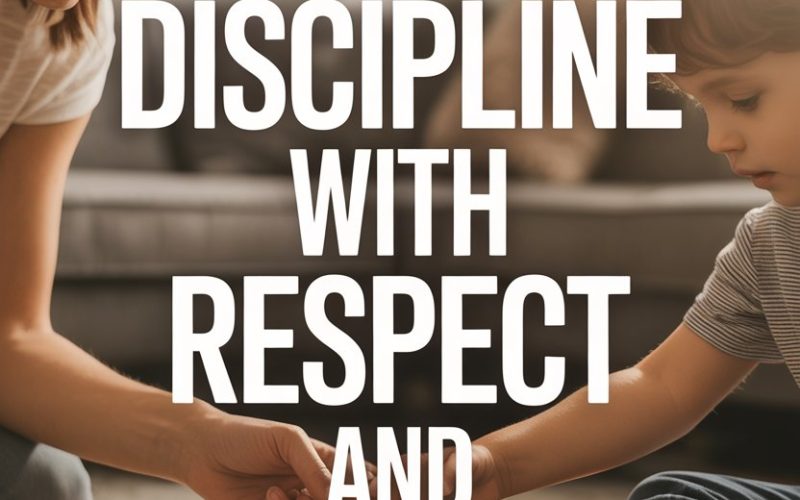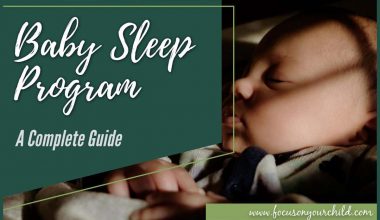Parenting comes with a secret superpower: you get to shape a human being. Sometimes, though, it feels less like wisdom-sharing and more like refereeing a pack of hyperactive squirrels.
Discipline is part of that job—but it doesn’t have to mean power struggles or endless time-outs. Respectful discipline can bring out the best in your kids (and maybe even in you).
What Respectful Discipline Really Is
Respectful discipline isn’t about letting kids run wild, nor is it about barking orders like a drill sergeant.
At its heart, it’s about guiding children toward good choices, while helping them feel heard and understood.
Picture discipline as a GPS for growing brains: “Recalculating” doesn’t mean “I don’t love you,” just “Let’s try another route.” The goal is self-control, not just obedience.
Why Traditional Punishments Tend to Backfire
Old-school discipline—think endless grounding, yelling, or a threat to take away every toy ever owned—often gets quick compliance but at a significant cost.
Sure, the room gets cleaned, but resentment simmers, and the lesson gets lost somewhere between the stomping and the slamming of doors.
Research from the American Academy of Pediatrics points out that harsh punishment can increase aggression and damage trust, making it far less effective in the long term.
Better outcomes come from approaches that teach, rather than punish.
Connection Comes Before Correction
Children are wired to seek connection with their caregivers. A child who feels secure and respected is much more likely to listen and cooperate.
That doesn’t mean you’re raising a tiny dictator. Boundaries still exist. The trick is to sandwich discipline between big doses of empathy.
Try this: “I see you’re upset you can’t have the biscuit before dinner. I get hungry too. We can have it after we eat.” The message is: “Your feelings are valid, and the boundary is firm.”
Dr. Laura Markham’s work on positive parenting highlights that children who feel connected to their parents are more motivated to behave well.
Get Curious, Not Furious
Ever found yourself repeating, “Why did you DO that?” with increasing volume?
Young children often can’t explain their behavior, but that doesn’t mean they’re plotting your downfall. Instead of assuming the worst, get curious.
Ask, “What were you hoping would happen?” or “What’s making it hard to listen today?” You might discover your child is tired, hungry, or overwhelmed—not rebellious.
This shift from blame to curiosity helps kids learn about themselves alongside the lesson you’re trying to teach. You get less drama, and they get better at owning their choices.
Clear, Calm Boundaries Win Every Time
Children need boundaries the way satnavs need batteries. Rules work best when they’re simple, consistent, and delivered calmly.
No need for a 10-minute lecture on the philosophy of sharing when “We don’t hit. Hitting hurts. You can use your words,” covers it.
When a rule is broken, keep your cool. If you lose it (we all do), apologise after. Nothing models emotional regulation like a parent who can admit they messed up, too.
Natural Consequences Pack More Punch Than Threats
Ever noticed how a child learns to slow down on a slippery path after a tumble, but completely ignores repeated warnings? Natural consequences teach better than any punishment.
If the snack is left out, the ants find it. If the toy is thrown, it goes away for a bit. No need for theatrics—just allow reality to do the teaching.
A study published in the journal Child Development found that children who experience natural consequences tend to develop more self-control and responsibility.
Time-Outs: Rethink the Naughty Step
The “naughty step” has been a popular tool, but separating children when they’re already overwhelmed can backfire.
A modern twist? Offer a calm-down spot. “Would you like to sit here with me until you feel better?” This keeps the connection alive.
Time-ins focus on helping your child find their calm, not just serving solitary confinement for crimes against domestic peace.
Praise Effort, Not Just Results
Children thrive on encouragement, but generic praise (“Good job!”) can fade into background noise. Praise the process: “You worked really hard to solve that puzzle.” Or, “I saw you tried to use gentle hands with your sister.”
This boosts self-esteem and motivation, rather than just chasing your approval. Psychologist Carol Dweck’s research on growth mindset backs this up—kids praised for effort become more resilient and persistent.
Consistency Without Perfection
Anyone who’s tried to enforce bedtime during a heatwave or after a birthday party knows: Consistency is the goal, not the expectation. Life throws curveballs, and sometimes the rules bend.
Kids cope better when boundaries are predictable, but it’s okay to explain, “Tonight’s different—tomorrow we’re back to normal.”
Flexibility teaches kids how to handle change without throwing the whole routine out the window.
When Emotions Are High, Wait for Calm
Nothing productive ever happens mid-tantrum, except maybe discovering just how loud your child’s lungs can go.
During meltdowns (yours or theirs), focus on keeping everyone safe and calm. Address the issue when the storm passes. This doesn’t mean ignoring misbehavior, just choosing your timing wisely for everyone’s sake.
Dr. Daniel Siegel’s work on emotional regulation shows that kids (and adults) are more receptive to problem-solving once their “emotional brains” have cooled off.
Lead by Example—Even When It’s Inconvenient
Kids are expert mimics. If you’re handling stress by yelling or slamming cupboards, odds are, your little ones will do the same.
Demonstrate respectful conflict resolution, apologise when you slip up, and talk openly about feelings. These small acts create a blueprint your children carry well beyond childhood.
Consequences That Teach, Not Shame
If you need to enforce a consequence, make sure it ties directly to the issue. If your child refuses to put toys away, the natural result is losing access to those toys for a short period—not banning telly for a week.
Consequences lose their magic when they’re random, excessive, or intended to shame. Aim for logical links, and keep your explanations brief. “We need to look after our things. Toys that aren’t put away have a rest.”
Repair and Reconnect
Every parent has moments they wish they could erase—the door slam, the harsh word, the eye roll worthy of a teenager. After an outburst, repair matters more than perfection.
Apologise, offer a hug, and talk about what you’ll do differently next time. This models healthy relationships and shows your child they’re loved, not just when they’re behaving well.
Letting Go of Control (a Little)
Sometimes, power struggles explode because kids have no say in their daily lives. Offer choices wherever you can: “Would you like the blue socks or the stripy ones?” “Do you want to tidy up now or after dinner?”
These small freedoms give kids a sense of ownership, reducing the urge to rebel at every turn. And, let’s be honest, it takes some of the sting out of enforcing the non-negotiables.
When You’re Completely Out of Patience
Some days patience feels about as elusive as a pair of matching toddler socks.
If your reserves are gone, step away for a breather (the laundry room is a classic parent hideout). Ask your partner, a friend, or a neighbour for backup.
No one disciplines well when running on fumes.
Being honest about your limits doesn’t make you a bad parent—it makes you a human one.
The Long Game of Parenting
The aim isn’t perfect kids—or perfect parents. Respectful discipline is a marathon, not a sprint.
There will be setbacks, spectacular missteps, and moments when you contemplate running off to join the circus.
But if you keep showing up with empathy, clear boundaries, and a pinch of humour, you’re building trust and skills that last a lifetime.
And that’s the real result worth striving for.





